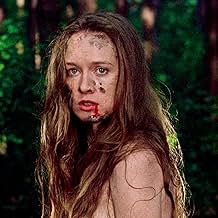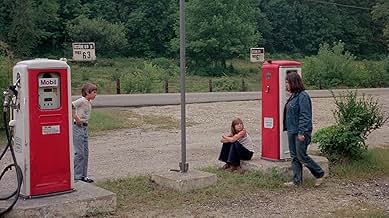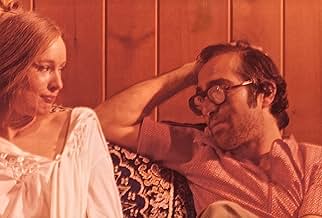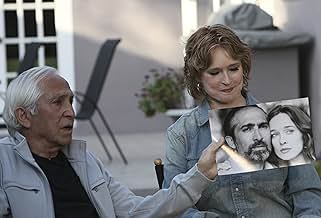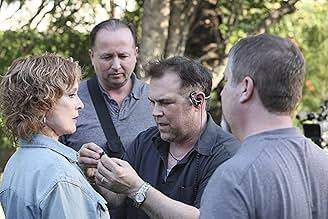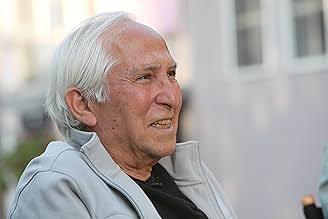For the first time ever, explore the myths behind the controversial film Oeil pour oeil (1978).For the first time ever, explore the myths behind the controversial film Oeil pour oeil (1978).For the first time ever, explore the myths behind the controversial film Oeil pour oeil (1978).
- Director
- Writer
- All cast & crew
- Production, box office & more at IMDbPro
Featured reviews
Growing Up with I Spit on Your Grave (2019) is a documentary currently available on Tubi. The storyline follows the director, producer and key members of the cast who created I Spit on your Grave. They share the challenges they had putting the movie together, getting it released, the initial reviews and how it became a staple in horror history.
This movie is directed by Terry Zarchi (Holy Hollywood) and contains Camille Keaton (What Have You Done to Solange), Meir Zarchi (I Spit on Your Grave: Deja Vu), Gunter Kleemann, Eron Tabor (Candy Stripe Nurses) and Nuri Habib (Without Home).
As a fan of this picture since I was a kid, the narration and storytelling was fascinating, especially the details about how scenes were created, the realism, the characters feelings as they were making it and looking back. The Siskel and Ebert take on the movie was interesting, as was how VHS 📼 played a key part in the films success. They even did a good job sprinkling in the Demi Moore aspect and how the cast evolved post movie and feel about the film today. There's a lot of fun nuggets in here. I also liked the son of the original director made this.
Overall, this is a must see for horror genre fans. I would score this a solid 7.5-8/10 and strongly recommend it.
This movie is directed by Terry Zarchi (Holy Hollywood) and contains Camille Keaton (What Have You Done to Solange), Meir Zarchi (I Spit on Your Grave: Deja Vu), Gunter Kleemann, Eron Tabor (Candy Stripe Nurses) and Nuri Habib (Without Home).
As a fan of this picture since I was a kid, the narration and storytelling was fascinating, especially the details about how scenes were created, the realism, the characters feelings as they were making it and looking back. The Siskel and Ebert take on the movie was interesting, as was how VHS 📼 played a key part in the films success. They even did a good job sprinkling in the Demi Moore aspect and how the cast evolved post movie and feel about the film today. There's a lot of fun nuggets in here. I also liked the son of the original director made this.
Overall, this is a must see for horror genre fans. I would score this a solid 7.5-8/10 and strongly recommend it.
No pun intended - if you have seen the movie (and I assume you have, so no warning necessary as far as I am concerned), you will know what I am talking about. All the main players talk about the making of the movie ... and how they have lived since. The movie is infamous for a reason ... or two. And if you are sensible, you probably should not watch it. The movie goes to the beginning ... and yes the very first question many of us have anyway: Why? Is there a reason someone would want to make a movie like this? And you get a satisfying answer.
It has to do with an incident the director had with his family. Having that as a backstory, may make you more ... well you may view the movie through a different perspective. Everyone involved wanted to do their best and of course they only depicted something that unfortunately does happen - not the revenge part (as much I assume), but the sexual assault part.
So putting a spotlight on that may have been a good things to do ... or at least it had good intentions to begin with. This really goes in depth and is not afraid to ask tough questions too. So while I may not be a fan of the movie itself, I do like the documentary itself! The people behind it - as one who has seen actors from the horror genre know best, are as sweet as you can imagine. Maybe this will change your mind about the movie ... I doubt it will do anything about the bad sequel to the original ... not the sequels to the remakes mind you ... it's getting complicated again ... anyway, violence is never the answer ... I think is the message here.
It has to do with an incident the director had with his family. Having that as a backstory, may make you more ... well you may view the movie through a different perspective. Everyone involved wanted to do their best and of course they only depicted something that unfortunately does happen - not the revenge part (as much I assume), but the sexual assault part.
So putting a spotlight on that may have been a good things to do ... or at least it had good intentions to begin with. This really goes in depth and is not afraid to ask tough questions too. So while I may not be a fan of the movie itself, I do like the documentary itself! The people behind it - as one who has seen actors from the horror genre know best, are as sweet as you can imagine. Maybe this will change your mind about the movie ... I doubt it will do anything about the bad sequel to the original ... not the sequels to the remakes mind you ... it's getting complicated again ... anyway, violence is never the answer ... I think is the message here.
This was a documentary that I saw pop up on Screambox. I decided since this is a divisive film that I've seen a couple of times, I was intrigued to see what this would offer. Something that was even more interesting was that the son of the original writer/director Meir Zarchi was behind this doc. His name is Terry. This was a documentary that I watched late in the day at work to help pass the time, treating it like a podcast episode.
What we're getting here are things that I look for in a doc like this. We start off with learning about the origins of this story. It is heartbreaking hearing Meir and his friend see a woman walk out of the woods after she had been assaulted. The police were blaming her for what happened. This inspired Meir to write a screenplay about a woman in her situation but decides to take the law into her hands.
It is from there that we learn about the different steps of pre-production which included the hiring of Camille Keaton as the lead along with her co-stars Gunter Kleemann and Eron Tabor. The special effects supervisor William Tasgal is also interviewed here. He comes more into play during the production of the film. What I like there is he talks about the different ways they brought horrific things to life. We also hear stories on set and the difficulties of different sequences. I'm glad to hear the cast got along. It did sound traumatic for Keaton.
The last section of this documentary is the issues this ran into getting seen, especially in the United States and United Kingdom. This then grows into its lasting legacy. What is interesting there is that we hear from Siskel and Ebert, Joe Bob Briggs and more modern film critics. There is also a personal touch here as we get Meir, Terry, his sister Tammy and the others. That adds a human touch for sure.
This is made well enough. It flows at a good pace. This edits in footage to help show things that were being said, including the effects. You can tell that it isn't made with the biggest budget, but that's not a slight on it in the least bit. This is a doc about a cult classic that deals with heavy subject matter. It does bring humanity to it though, which I appreciate for sure.
My Rating: 7.5 out of 10.
What we're getting here are things that I look for in a doc like this. We start off with learning about the origins of this story. It is heartbreaking hearing Meir and his friend see a woman walk out of the woods after she had been assaulted. The police were blaming her for what happened. This inspired Meir to write a screenplay about a woman in her situation but decides to take the law into her hands.
It is from there that we learn about the different steps of pre-production which included the hiring of Camille Keaton as the lead along with her co-stars Gunter Kleemann and Eron Tabor. The special effects supervisor William Tasgal is also interviewed here. He comes more into play during the production of the film. What I like there is he talks about the different ways they brought horrific things to life. We also hear stories on set and the difficulties of different sequences. I'm glad to hear the cast got along. It did sound traumatic for Keaton.
The last section of this documentary is the issues this ran into getting seen, especially in the United States and United Kingdom. This then grows into its lasting legacy. What is interesting there is that we hear from Siskel and Ebert, Joe Bob Briggs and more modern film critics. There is also a personal touch here as we get Meir, Terry, his sister Tammy and the others. That adds a human touch for sure.
This is made well enough. It flows at a good pace. This edits in footage to help show things that were being said, including the effects. You can tell that it isn't made with the biggest budget, but that's not a slight on it in the least bit. This is a doc about a cult classic that deals with heavy subject matter. It does bring humanity to it though, which I appreciate for sure.
My Rating: 7.5 out of 10.
Did you know
- TriviaAn okay doc but as always Americans get Video Nasties wrong. No one was sent to jail or even prosecuted for having a copy of "I Spit on your Grave"! Unless a film's content broke the law, it was perfectly okay to own any film. It was RENTING or SELLING Video Nasties that got you into trouble. Not simply owning them.
- ConnectionsFeatures Oeil pour oeil (1978)
- How long is Growing Up with I Spit on Your Grave?Powered by Alexa
Details
- Runtime1 hour 42 minutes
- Color
Contribute to this page
Suggest an edit or add missing content

Top Gap
By what name was Growing Up with I Spit on Your Grave (2019) officially released in Canada in English?
Answer


